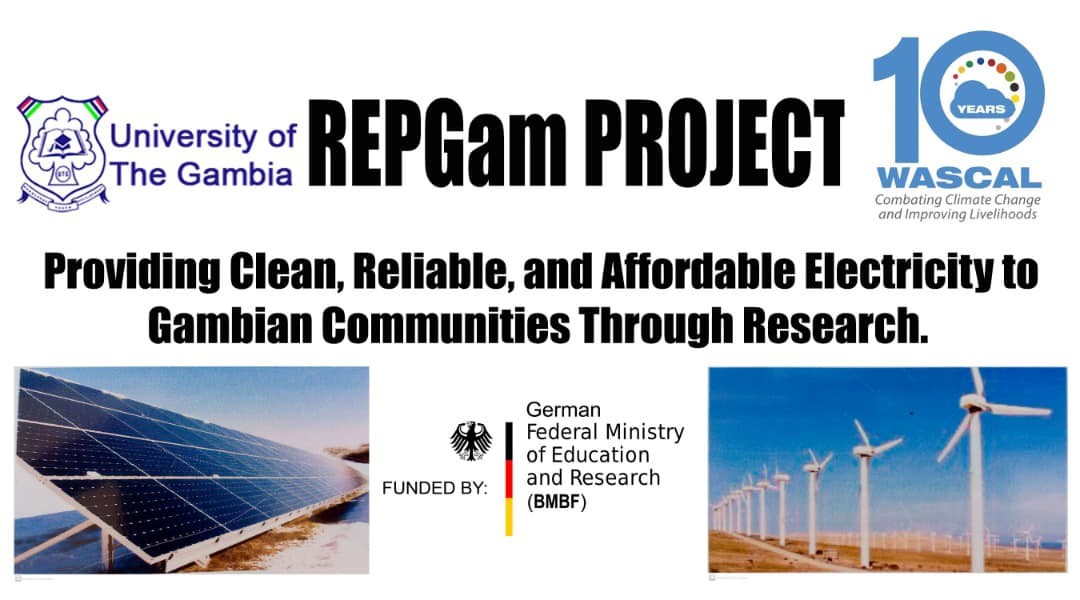By: Fatoumata Joof, Information Officer, MoHERST
The Ministry of Higher Education, Research, Science and Technology (MoHERST) and partners recently concluded two-day meeting on the Science, Technology and Innovation for Sustainable Development Goals (STI4SDGs) Roadmap Project for The Gambia.
The meeting started on Wednesday, 31st January, 2024 and ended on the following day was a product of collaboration between government, the Joint Research Centre (JRC) and the Directorate General for International Partnership (DG INTPA) of the European Commission.
The workshop aimed to explore how the current Science, Technology and Innovation (STI) system in The Gambia can be enhanced to address the critical issue of food self-sufficiency. Similarly, the gathering leveraged the experience of selected stakeholders to prioritize sustainability issues within the food system and engaged in mapping discussions on existing STI instruments.
In his opening remarks, the Hon. Minister of Higher Education, Research, Science and Technology, Professor Pierre Gomez highlighted the importance of the STI4SDGs roadmap projects which he said marked a significant milestone in the government’s collective journey towards fostering innovation and ensuring food security in The Gambia.
Minister Gomez stated that the outcomes of the workshop will not only inform the country’s policy landscape, but will also pave the way for concrete actions that have the potential to transform the lives of the citizens. He asserted that The Gambia’s “commitment to the Sustainable Development Goals demands that we not only aspire to improve food self-sufficiency, but actively engage in the design and implementation of strategies that drive sustainable change.”
Hon. Gomez thanked the Joint Research Centre, the Directorate General for International Partnerships, and all stakeholders for their collaboration and added that he was confident that the collective efforts over the two days will set the stage for a future where Science, Technology, and Innovation become powerful catalysts for positive change in The Gambia.
The Head of Cooperation of the European Union to The Gambia, Enrica Pellacani, highlighted the potential of STI in harnessing the food insufficiency in The Gambia. She stated that Science Technology and Innovation remains at the centre for development and that the exercise was essential especially at the time that the European Delegation is working with stakeholders to develop a new system that will leverage the potentials of STI in addressing food insufficiency. She added that food system is one of the priorities of the European Union in The Gambia and they are going to continue their support in finding ways to address the food issues in The Gambia.
Ms. Eleonora Rella, Programme Manager of Research and Innovation Development at the European Commission, thanked the Ministry and the Joint Research Centre colleagues for their efforts and initiative and for the development of the framework.
She also stated that the European Commission’s Director General for International Partnerships recognizes that Science, Technology, Innovation and Education are currently regarded as powerful tools to accelerate the achievement of the SDGs globally.
“Education, Research and Innovation are featured as key policy drivers in our Global Gateway Strategy and are positioned at the very core of our partnership with Sub-Saharan Africa through the AU-EU Innovation Agenda, which reiterates the commitment of the European Commission to work with partner countries to support their full transformation into knowledge-based and innovation-led economies,” she explained.
Other speakers at the meeting included -Dr. Chux Daniels, Joint Research Center Expert and Research Fellow in STI Policy at Sussex and Dr. Pierre Rialland, Representative from the Joint Research Center (JRC).



